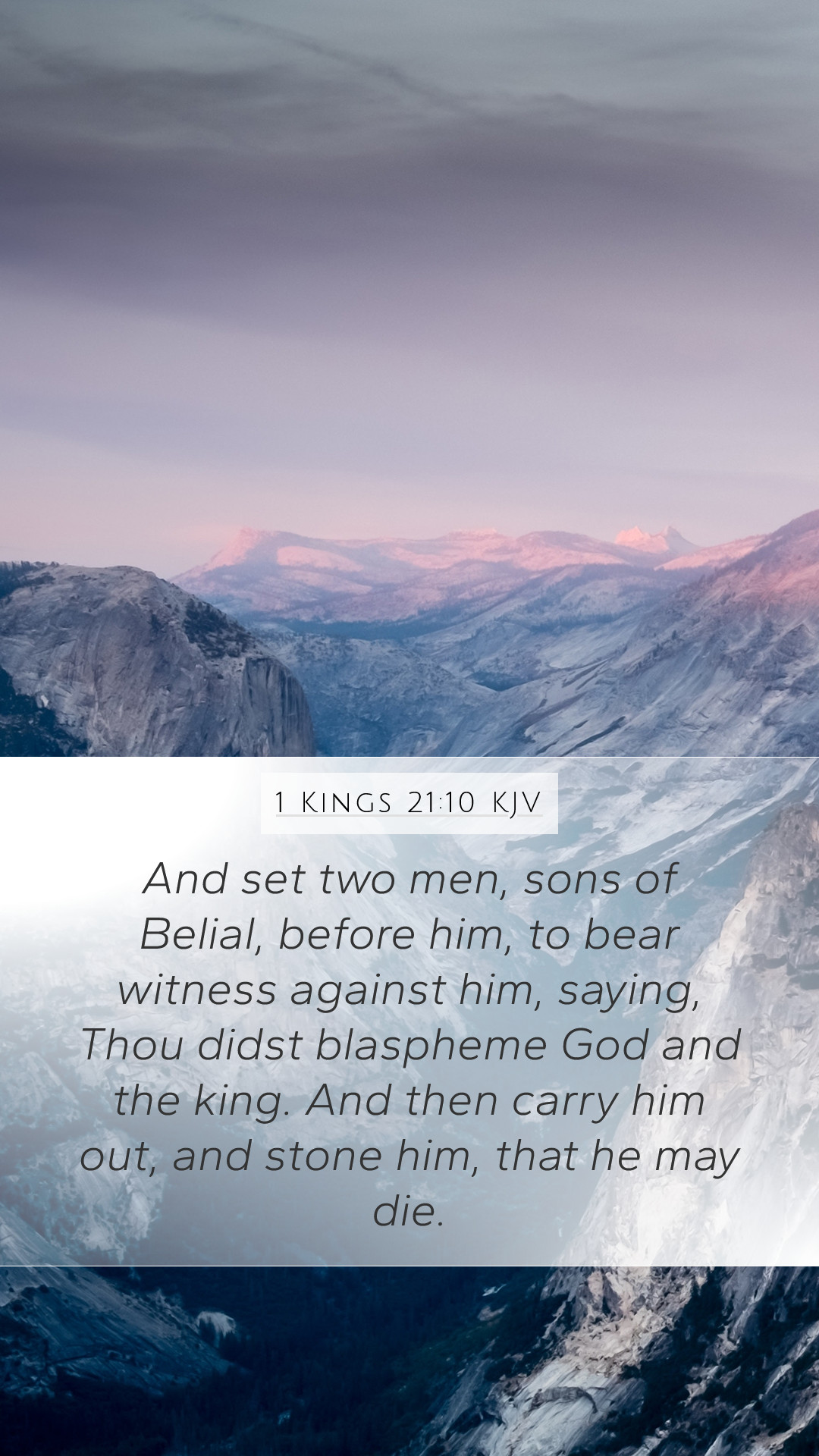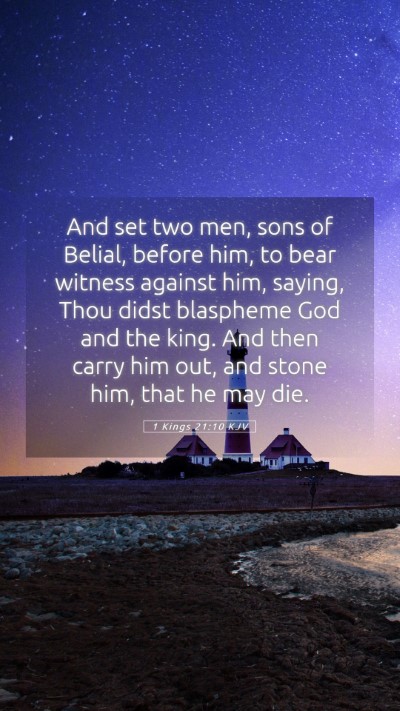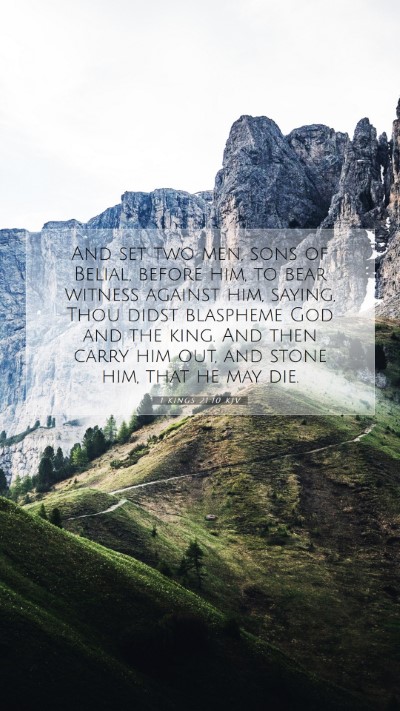Bible Verse Explanation: 1 Kings 21:10
This verse is a significant moment in the narrative of King Ahab and Queen Jezebel, highlighting themes of injustice and moral corruption. In this passage, we see a plot to silence the voice of Naboth, who refuses to sell his vineyard to Ahab.
Verse Context
The context in which 1 Kings 21:10 is situated is critical for understanding its implications. Ahab desires Naboth's vineyard, a desirable piece of land adjacent to his palace. When Naboth rejects his offer, Jezebel devises a plan to accuse Naboth of blasphemy, leading to his execution. This scheme illustrates the lengths to which the corrupt powers will go to fulfill their desires.
Commentary Insights
- Matthew Henry's Commentary: Henry notes that this incident is indicative of the turning point in Israel's moral decline under Ahab's reign. It demonstrates the evil influence of Jezebel and the wickedness of using false accusations to achieve personal gain.
- Albert Barnes' Notes: Barnes emphasizes how the actions of Jezebel reflect a complete disregard for divine law and justice. The execution of Naboth not only lacks moral justification but also highlights Ahab's culpability as a passive participant in this crime.
- Adam Clarke's Commentary: Clarke provides a detailed analysis of how this story serves as a cautionary tale about the corruption of power. He connects the narrative to broader themes of prophetic accountability and moral integrity within leadership.
Thematic Analysis
The themes of injustice, abuse of power, and divine retribution are central to understanding this passage. The injustice faced by Naboth serves as a poignant reminder of the consequences that arise when rulers act without regard for ethical standards.
Moral Implications
1 Kings 21:10 challenges readers to examine their own lives in the light of justice and integrity. It poses questions about how individuals might respond when they see wrong being done:
- Are you willing to stand up against tyranny and injustice?
- How does this story influence your understanding of personal responsibility within leadership?
Application for Today
In modern contexts, this scripture provides a framework for understanding how individuals can navigate their own moral landscapes, especially when faced with societal pressures. It calls for vigilance against corrupt practices, encouraging believers to advocate for justice and integrity.
Related Biblical Cross References
- 2 Samuel 12:1-7: Nathan confronts David about his sin with Bathsheba, resembling the theme of divine accountability.
- Proverbs 22:22-23: These verses warn against robbing the poor and needy, paralleling Naboth's plight.
- Isaiah 5:8: God's judgment on those who unjustly acquire land, reinforcing themes of rightful ownership and justice.
Conclusion
1 Kings 21:10 serves as a powerful reminder of the necessity of ethics and moral responsibility in leadership. By analyzing this scripture through various commentaries, believers can deepen their understanding of biblical exegesis and its application in today’s world.
For Further Study
Engage with this verse through:
- Bible study groups focused on Old Testament narratives.
- Online Bible study courses that delve into themes of justice and morality.
- Bible study tools that assist with in-depth verse analysis.


